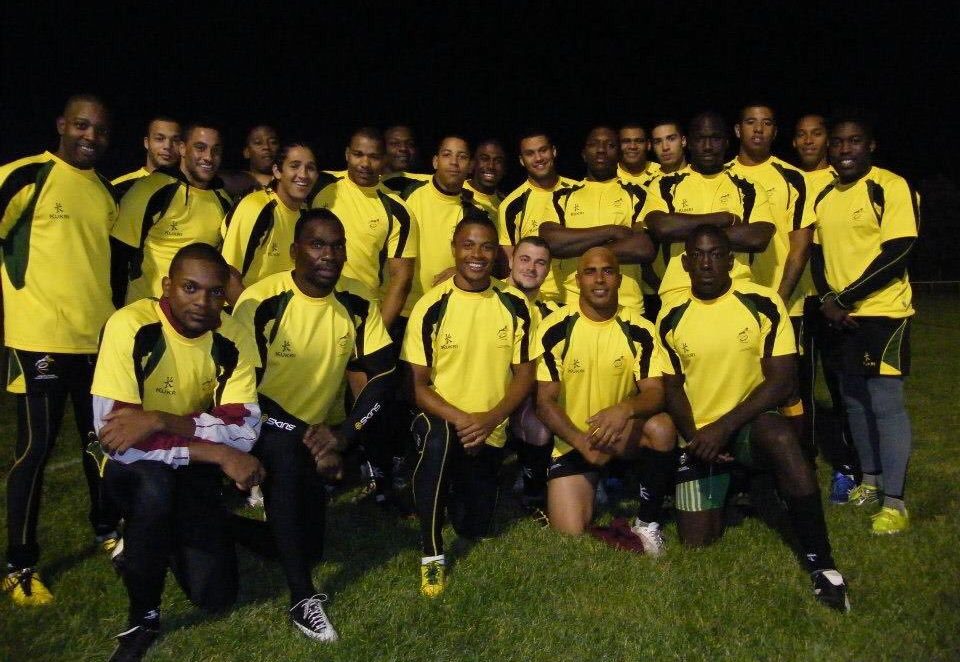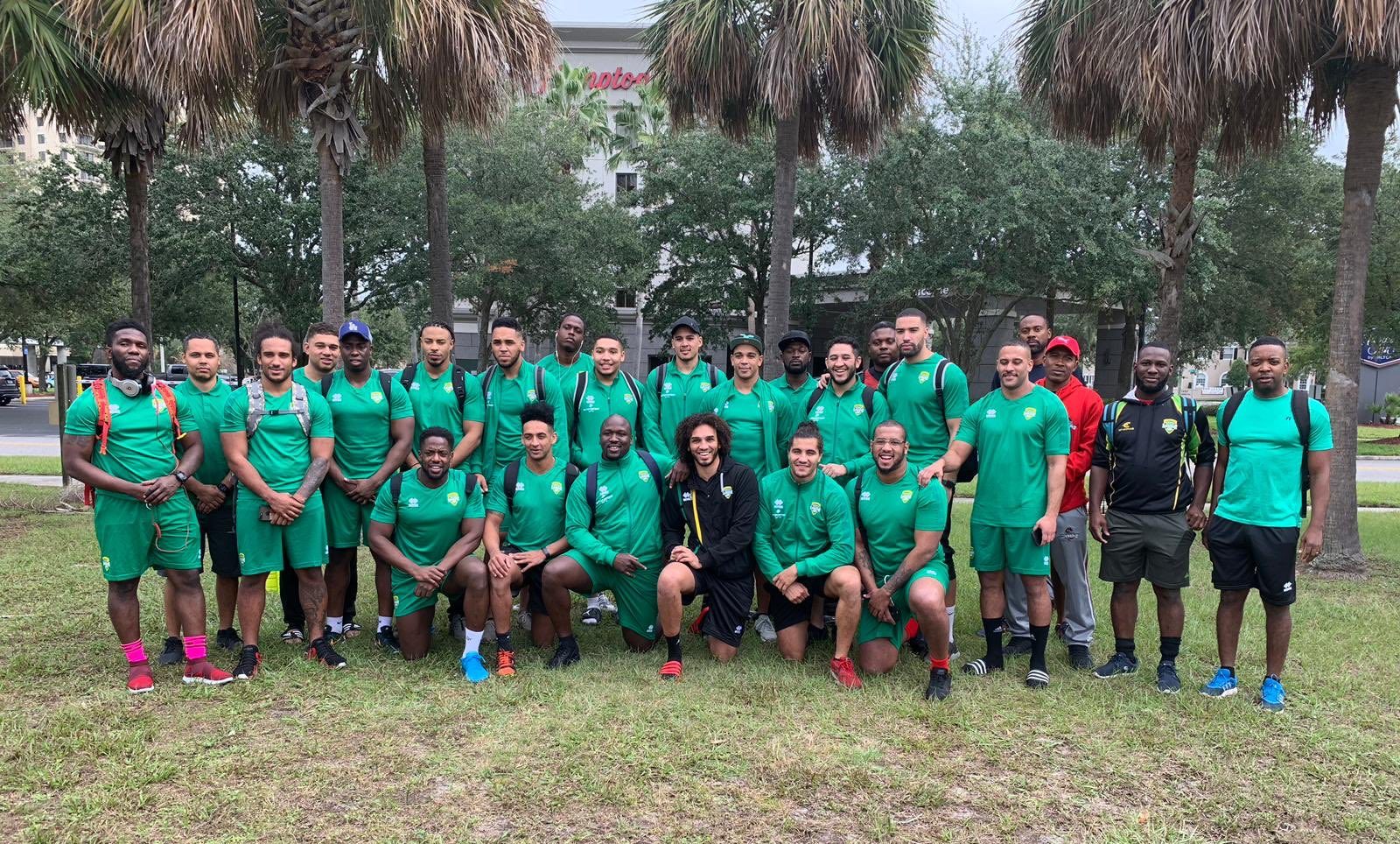The Reggae Warriors: Jamaica’s rugby league team defying the odds
When you think of Jamaican sport, you probably think of one event, or even just one man. The fastest man in the world. Perhaps with a doff of the hat to the 1988 ‘Cool Runnings’ bobsleigh team.
But now there’s a new team to look out for on the Caribbean island — The Reggae Warriors.
Mention rugby league to a Kingston native 20 years ago and they wouldn’t have known what you were on about. Fast forward to 2018, and Jamaica have qualified for their first ever Rugby League World Cup, just nine years after making their international debut. After defeating Canada 38-8 and a first ever victory over the USA in seven attempts, the Reggae Warriors will be showcasing their talent to the world when the tournament comes to England in 2021.
Not bad for a team without a home, who had to self-fund their way to the qualifiers.
The sport only came to the country in 2004, with an amateur domestic league starting a year later. National team head coach Romeo Monteith was there from the very beginning, and the journey has been anything but smooth.
“I was at the very first game and on the very first board as Director of Junior Rugby League. A lot of people said we were being ridiculous because there was already rugby union on the island,” Monteith explained.
“Everyone was like ‘rugby league, what’s that? Why do you need to be playing that?’”
Alas, Monteith and fellow stalwart Roy Calvert have raised the profile of the sport on the island significantly since, with two divisions in the domestic game, as well as an inter-collegiate competition. Although, not everybody has been won over.
“We don’t even have a field in Jamaica, we don’t have a home. It’s a hard road, it has always been a hard road,” he admitted.
“We play all around Kingston on football fields when we are allowed. We have been chased off fields, we have had so many bad experiences trying to keep a game going.”
Undeterred, Monteith carried on. And after unofficial international matches against Yorkshire Police and the RAF in the infancy of the domestic game, the appetite was whetted for international rugby.
Although both ended in defeat, Monteith — assistant coach at the time — said they were yearning for a bigger challenge. “We needed to start playing country versus country in order to be competitive, so we contacted USA and arranged a game in 2009 in Jacksonville.”
That first international saw ten domestic players link up with ten UK based players in a 37-22 defeat. This included Lamont Bryan and Joe Brown, both of whom played in the qualification clincher against the USA nine years on.

The issue of team selection has been a delicate one for Monteith since making the step up to head coach in 2011. The Jamaican culture has to be present in the team, with room for home-grown players, but also accommodating those at English clubs, such as Wakefield’s Ben Jones-Bishop.
“For me, it’s about finding balance and giving opportunities, but it’s also about performance. In my opinion our strongest team will always include domestic players as well. We have some really good talent on the island, but we are realistic,” he confessed.
“A professional player is a different beast to an amateur player. We genuinely felt doing a 10/10 split would not get the job done so we made a decision and we stood by it. And here we are, England 2021.”
The players may all share the same Jamaican heritage, but culturally, they can be worlds apart. The streets of Kingston can be very different to the ones in Batley or Halifax, for example. This is where Jermaine Coleman comes in.
He has juggled coaching roles with London Skolars and the Jamaican side for the last three years, having played for the Reggae Warriors previously. A background that is invaluable to Monteith.
“We are all Jamaicans, but there are cultural differences and some communication barriers as well. Jermaine does a really good job leading the boys. With the majority of the squad being UK-based, a voice that is similar to their’s made it a lot easier.”
Aspirations are high for their inaugural World Cup, and Monteith is always on the hunt for new recruits for the national side. Whether they are from abroad or closer to home, it doesn’t matter. On one condition, they keep the Jamaican identity within their team.
“I’m interested in people who want to represent Jamaica because they feel an affinity and a love for it. I’m not interested in someone coming along for a ride. I’m careful about the people I welcome into the fold because people need to do things for the right reason,” he warned.
“Its not just ‘yeah I’m Jamaican, so welcome’. You have to have the right attitude to fit in with what we’re doing.”
The right attitude is exactly what they had in qualifying. Ben Jones-Bishop and Leeds’ Ashton Golding led by example in a squad made up largely of Championship and League 1 players.
Whilst getting more Super League players on-board would help matters, Monteith said getting them to take to the field is easier said than done. Clubs have the power over the countries, it seems.
“There were a few other guys that wanted to come, but they were pretty much stopped by their clubs from representing us. Some Super League guys. A couple of years ago one of the player’s coaches told him basically if you play you probably won’t have a contract next year.”
Just another challenge to overcome in the life of the Reggae Warriors. Just like the issue of funding, or more accurately, the lack of it.

Everyone had to contribute towards their air fare in getting to Jacksonville for the qualifiers, as funds were cut by the Rugby League International Foundation, who, in a way, are victims of their own success.
With more countries involved in rugby league, participation in the sport is on the rise, but with “not as much money in the pool” according to Monteith, self-sufficiency is the only way to progress.
But what does progress mean for rugby league in Jamaica? Not just in 2021, but longer term? For a national side that still lives a nomadic existence and faces regular obstacles in simply playing the game, Monteith believes acceptance has to be top of the list.
“Everything we have been doing has been to steadily increase our participation figures to make rugby league a stable long-term sport in the country.
“I’m praying that we get a home for ourselves, because that in itself will be a game changer. That’s when the nightmare ends in terms of scheduling, not having to postpone or cancel things.”
But if all else fails, they still have their warrior spirit.
“We are resilient. Whether there’s stones on the field we’ll play, whether there’s grass we’ll play, whether there’s dirt we’ll play,” Monteith said defiantly.
And after defying the odds to get this far, who are we to doubt him?
Featured photograph/ Phil Caplan